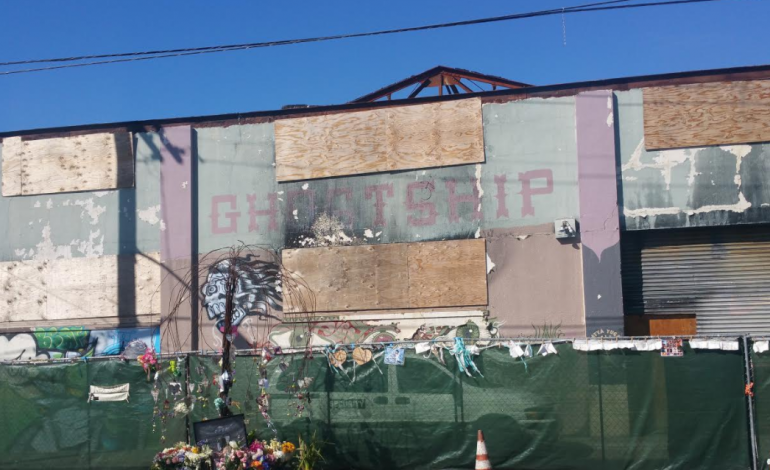

On December 2, 2016, an Oakland, California warehouse art collective called Ghost Ship caught fire killing 36 people during an electronic music event. Today during his retrial, the leaseholder of the warehouse, Derick Almena, has pleaded guilty on 36 charges of involuntary manslaughter, one for each person that passed in the fire.
Because Ghost Ship was set up as a labyrinth, it unfortunately became incredibly hard for people to escape the fire. The building was not up to code and did not use proper wiring which was part of the root of the tragedy that happened five years ago. Aside from the technical issues with the building, most artists can’t afford to live in the larger art-based areas such as San Francisco, Los Angeles and New York, which leads them to live in these unsafe collectives, which are often not up to safety code.
Almena’s pleas were part of an agreement which would allow him to serve 9-12 years in prison rather than the 39 years that he could’ve served. He began his retrial in October of 2019. Because Almena has already served part of his sentence in Santa Rita Jail and was awarded good credit during that time, he is not expected to fulfill the rest of his sentence in jail. Instead, he will more than likely stay in his home with an ankle monitor for the next year and a half. After that, he would be under supervised probation for three years. Almena will reappear in court on March 8 to finalize the details and formally be sentenced.
During the March 8 court date, the families of those lost in the fire will have a chance to speak up and give a glimpse of how this tragedy has affected them and those around them. “We can make our voices heard. All we can do is speak up and represent our children,” said Colleen Dolan, mother of Chelsea Faith Dolan, according to the East Bay Times.
At the beginning of it all, Max Harris, creative director for the Ghost Ship, was also being tried for the fire. However, as the trial progressed, Harris was later acquitted in September of 2019, not long after pleading not guilty.
Almena and Harris are accused of not ensuring the building was up to code and complying with building permits. At the time, Almena was allegedly letting more people live in the collective than the fire code allowed, which was 25. It was also stated by CNN that there were numerous flammable materials that were stacked from the floor up to the ceiling. Along with that, one of the exits of the warehouse were not accessible, fire alarms were not installed and sprinklers were not marked.
A little over a year after the tragic fire, the cause of fire was still considered “undetermined.” However, other cities did not refrain from responding to the situation. Places like Rhinoceropolis in Denver, Queen Ave in Nashville and The Bell Foundry in Baltimore cracked down on their facilities. Whether that meant closing the facility or having to evict tenants, it unfortunately led to a lot of artists having to leave those areas completely.
In late 2019, novelists Michael Chabon and Ayelet Waldman announced that they were working on developing a CBS television series about the tragic event at Ghost Ship. The project announcement came shortly after the third anniversary of the fire, which prompted a lot of backlash. Because of the responses, Waldman eventually announced that it would no longer be happening.
The fire at Ghost Ship has been recorded as one of the “deadliest nightclub fires in US history,” according to CNN.
Photo credit: Kellie MacDougall
